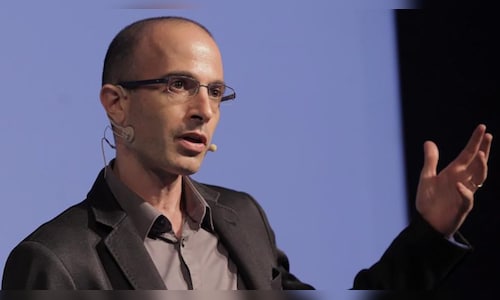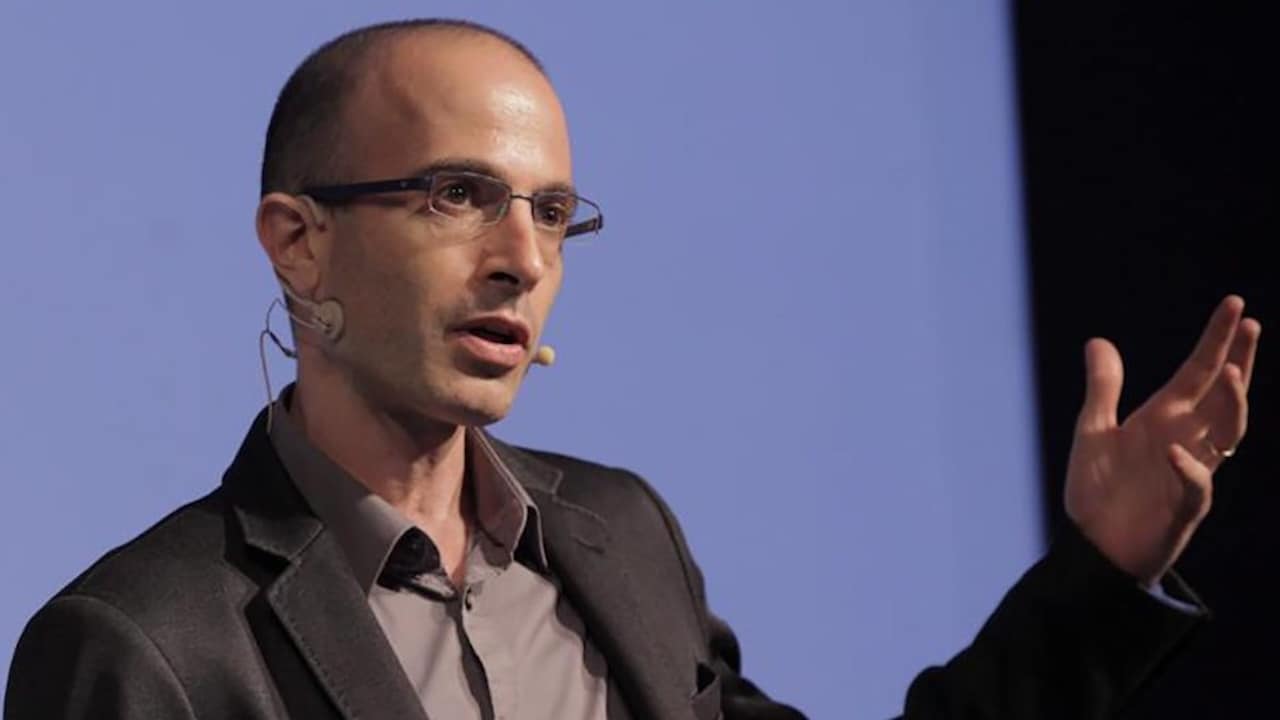

Harari, whose new book, Nexus, is out on shelves, painted a bleak picture of an AI-fuelled future.
Many have called the advent of AI the next industrial revolution. Harari says the reality is more nuanced — he says, unlike previous inventions that changed the world, AI is not a tool; rather, it is an agent that can theoretically act on its own.
“We are used, from history, of people inventing all kinds of new tools, from stone knives thousands of years ago up to atom bombs in the 20th century. And every tool we invent make us stronger because we have the power to decide what to do with it. You can use nuclear technology to destroy countries. You can use nuclear technology to generate electricity and light up our houses at night. AI is different. It’s the first technology that can make decisions by itself and can invent new ideas by itself. So it’s not a tool. It is an agent, and it’s not just one big computer. We are talking about millions and billions of AI agents that will increasingly populate the world and make more and more decisions and invent more and more ideas,” he says.
This, Harari says, could affect the financial sector more than others.
“If you apply to a bank to get a loan, it’s increasingly an AI deciding whether to give you a loan.”
Also read: MuleHunter AI: RBI’s answer to the surge in mule account fraud
Harari says the future will see a Catch-22-like situation in which AI is widely deployed in the financial system, including stock markets, making them more complex and, in turn, forcing humans to increasingly depend on AI to undertand the same systems.
“What does it mean for a government, either in a democracy or even in a dictatorship, if it can no longer understand the financial system?” Harari says.
Harari called AI tools that exist right now “primitive”.
“…but the AI revolution is moving extremely fast. We might be just five or 10 years away from having super-intelligent AIs, which are far more intelligent than us. At present, there are some limited fields, like playing chess, in which AI is already more intelligent than us. In a couple of years, it will happen in more and more fields, and the danger is that at that point, we might lose control over it,” Harari predicts.
Harari spoke about an incident in which he said OpenAI’s GPT-4 attempted to deceive a human into solving a captcha puzzle. “This very small incident shows us the two crucial abilities of AIs: first, to make decisions by themselves, and second, to invent a lie by themselves,” he explains.
Also read: Meet Kavya Mehra — India’s first AI-driven mom influencer
Harari also raises alarms about the military applications of AI. “It’s still humans pulling the trigger, but increasingly, it is the AIs that choose the targets,” he says, adding that it is a natural byproduct of the speed and efficiency with which AIs can analyse information compared to humans.
Given all this, Harari says it is of paramount importance to ensure the world has the right guardrails to contain AI.
“We invest very, very little in making sure that AI is safe.” He argues that the question of how much to allocate for safety should be a priority, yet companies and governments hesitate due to competitive pressures. “If we do it, and our competitors don’t do it, they will win the AI race,” he cautions.
Harari points out the paradox of human trust in this context: while humans struggle to trust each other, they seem willing to place their faith in AIs. “We have no experience with AIs. We don’t understand how they operate,” he says, stressing the need for cooperation among nations to prevent a chaotic AI race. He warns, “If there is a complete kind of out of control, no guardrails, no rules, know who will win and who will lose. AI will win and humanity will lose.”
But Harari doesn’t see global cooperation happening anytime in the foreseeable future.
“In order to protect ourselves from the worst outcome, we need some kind of cooperation between the humans. But it’s not happening. The international situation just keeps deteriorating, and with the new administration in Washington and the US, of course, is the leading contestant in the AI race, there is very little chance of any meaningful regulation or of any meaningful global agreement. So the situation doesn’t look very good,”
Also read: OpenAI introduces $200 ChatGPT Pro plan with advanced models and extra features



